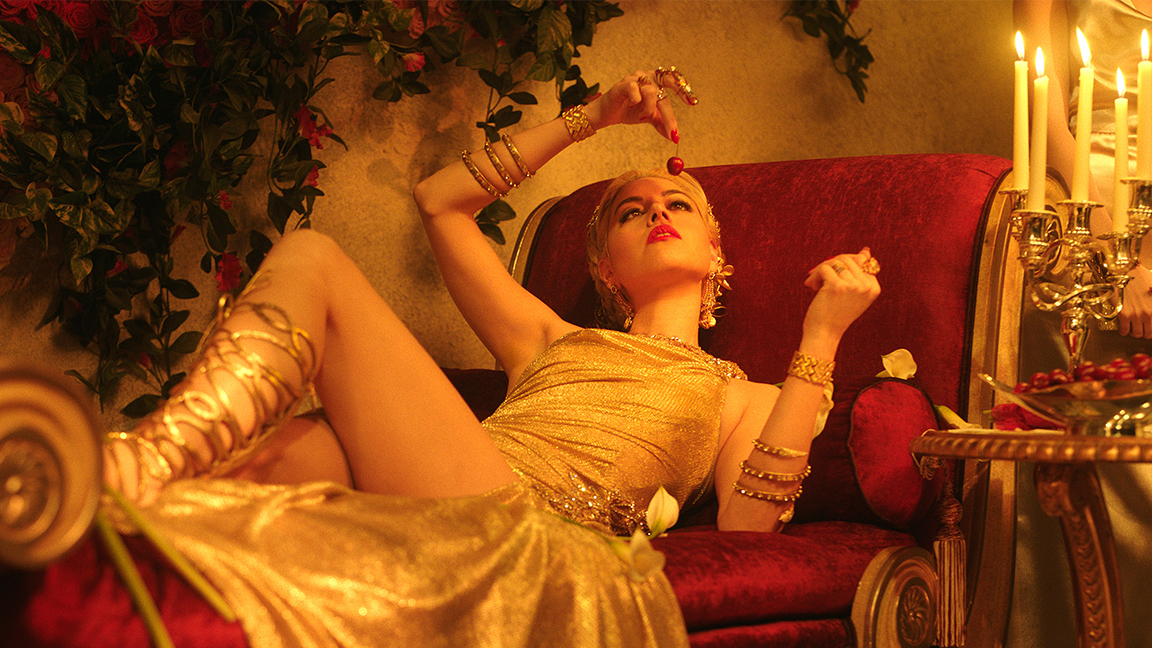Megalopolis premiered on May 16 at the 77th Cannes Film Festival and was released nationally on September 27. Directed, written, and produced by Francis Ford Coppola, the film was made using $120 million of his own money and took a cumulative 80 years to develop.
Coppola has faced significant backlash for misconduct allegations on set, and for using AI-generated fake positive critic quotes in the trailer. As a result, the film only made $4 million during its opening weekend and is receiving numerous negative reviews, even being referred to by some X users as “Megaflopolis.”
Set in New Rome — a dystopian version of New York City — the film follows Cesar (Adam Driver), an inventor with plans to build a visionary city. He tries to persuade everyone to embrace the change, but the Mayor (Giancarlo Esposito) wants to maintain the city’s regressive state. Julia (Nathalie Emmanuel), the mayor’s daughter, decides to spy on Cesar to uncover his motives. However, after spending time with him, she begins to fall in love.
As a big, swelling, orchestral theme fills the theater, viewers are imbued with excitement and anticipation. It resembles the opening themes of many famous fantasy film series, such as Star Wars or Pirates of the Caribbean, prompting audiences to expect the launch of another iconic franchise. The presence of actors like Adam Driver, known for his role in Star Wars, further amplifies the audiences’ expectations for this film.
A clock ticks as we see a beautifully choreographed shot of the Grand Central Terminal. This cuts to a still of a quote, read by the narrator (Laurence Fishburne), “Our American republic is not all that different from old Rome. Can we preserve our past and all its wondrous heritage? Or will we too fall victim, like old Rome, to the insatiable appetite for power of a few men.” Cesar is depicted standing atop a tall building, overlooking the city, able to snap his fingers and stop time. We never learn the reason behind his power, and the film provides no explanation for the supernatural elements at any point.
Overall, the storyline feels foolish and resembles a slightly misogynistic male fantasy of power and love. The trope of a female character (Julia) falling in love with her male adversary (Cesar) is overused in modern film. There is even a scene where she cries over Cesar’s visit to his deceased wife, portraying a strong female character as overemotional.
The film’s themes evoke Christian ideologies, suggesting that acceptance of Megalopolis’ power is essential to belonging in society – similar to the Christian belief that one must accept heaven in order to be a part of it. Cesar emphasizes that marriage is the most important thing to him. When the story concludes, the Mayor accepts Cesar’s vision for Megalopolis, and it is implied that he succeeded in building his utopia. I found myself questioning this ending because of its unrealistic nature.
In America, the idea of unattainable utopias is a recurring political theme, yet we have never achieved such progress as a society. Cesar’s campaign themes might be reminiscent of Trump’s “Make America Great Again,” a slogan that simply convinces people they can attain political perfection, which is something that will never happen. The United States obsesses over power and progression, yet true perfection will always be out of reach.
The plot does feature a few intriguing elements, such as the perception of time. Had the writers focused on this concept, it could have led to a more interesting and coherent storyline. However, midway through the film, the focus shifts away from Cesar and Julia’s narrative to follow Wow Platinum (Aubrey Plaza) and Cesar’s cousin, Clodio Pulcher (Shia LaBeouf), as they plot to get all of the money from Clodio’s father’s will. This shift creates competing storylines that make the film feel confusing and overwhelming, and the theme of non-linear timelines and the supernatural is left as a critical plothole.

Megalopolis is still worth seeing in theaters for its stunning visuals. Cinematographer Mihai Mǎlaimare Jr. has previously collaborated with Coppola on Tetro, Twist, and Distant Vision. His vision is the film’s most captivating aspect, along with its unique editing. In a story about a fantastical city, visuals are crucial for immersing the audience in the imagined world. Megalopolis featured images of iconic New York City landmarks, enhancing them to look more lavish. A standout scene is an experimental-style scene of Cesar getting high at a party, including a blend of dream-like imagery, immersing the audience in Cesar’s disorienting experience.
Though the storyline may falter and reviews are largely negative, the cinematic universe Coppola created has fascinating potential, and a future remake could yield something spectacular.








Leave a Reply